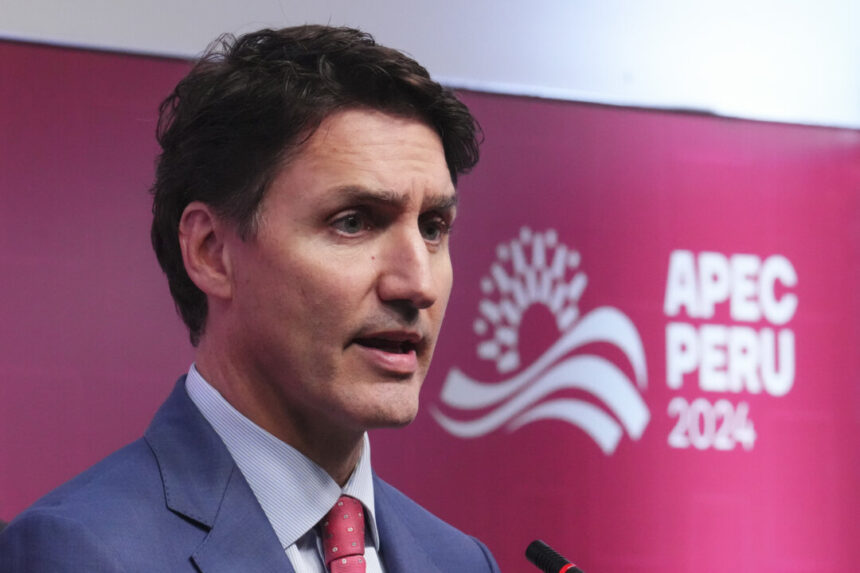Despite calls from premiers to exclude Mexico from a trilateral trade deal, Prime Minister Justin Trudeau emphasizes the importance of maintaining ties while acknowledging concerns over Chinese investments in Mexico that need to be addressed.
Trudeau praised Mexico for being a strong partner in advancing the interests of Canadians and North American workers during previous negotiations with Canada and the United States. Speaking at a press conference at the conclusion of the 2024 Asia-Pacific Economic Cooperation (APEC) leaders’ meeting in Peru on Nov. 16, Trudeau stated, “There are concerns around the level of Chinese investment in Mexico that I think need to be addressed, but I am hopeful that we’re going to be able to work constructively over the coming months and perhaps years to ensure that North America remains an advantageous place for North Americans, for our workers, for our middle class, and creates real growth.”
The trilateral trade deal, formerly known as the North American Free Trade Agreement (NAFTA), was renegotiated during Donald Trump’s first term as U.S. president and rebranded as the Canada-United States-Mexico Agreement (CUSMA) in 2020. The incoming U.S. president has pledged to review the agreement in 2026.
Trudeau’s comments come in response to Ontario Premier Doug Ford’s recent suggestion to potentially remove Mexico from CUSMA due to concerns that Mexico has become a gateway for Chinese goods, undermining efforts by Canada and the U.S. to address unfair trade practices by China.
In October, Canada imposed tariffs on Chinese-made electric vehicles and steel and aluminum products, matching measures implemented by the U.S. President Joe Biden earlier in the year. Ford urged Mexico to follow suit and implement similar tariffs.
Ford stated on social media that if Mexico does not align with Canadian and American tariffs on Chinese imports, it should not have a place at the table or benefit from access to the world’s largest economy.
Alberta Premier Danielle Smith echoed Ford’s sentiments during an interview with CBC, supporting the potential removal of Mexico from the North American trade partnership due to concerns about Chinese investment in the country.
In 2023, China overtook the United States as Mexico’s largest auto supplier, with Chinese auto exports to Mexico surpassing those from the U.S. Reports also indicate that major Chinese EV manufacturers are planning to establish factories in Mexico.
Reports have revealed plans by Chinese companies like BYD, Chirey, and MG Motor to invest in manufacturing facilities in Mexico, signaling a significant increase in China’s automotive presence in the region.
Canada’s Stance on China
Trudeau confirmed that Canada’s tariffs on Chinese-made electric vehicles were discussed during his recent conversation with Trump.
“We spoke directly about this issue. [Trump] inquired about Canada’s stance on China,” Trudeau stated.
“I highlighted our 100 percent tariff on Chinese electric vehicles and 25 percent tariffs on steel and aluminum, which aligned with his approach. We will continue to defend our interests as North American economies in a robust manner.”
Trudeau addressed the growing divide between countries engaging with China and those imposing tariffs, emphasizing Canada’s commitment to responsible and robust trade relations with China and other nations.
In response to Canada’s tariffs, China has threatened to investigate canola imports from Canada. Trade Minister Mary Ng announced plans to expand canola exports to other markets in the Indo-Pacific region in light of China’s actions.








